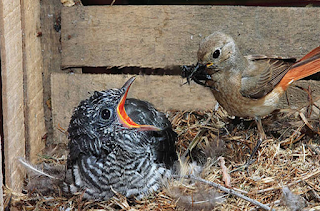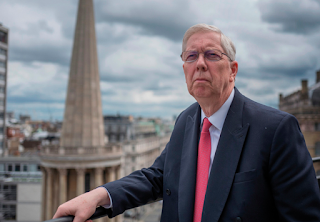Earlier in the week
the Times reported that the newly-appointed BBC chairman Sir David Clementi will be asking for "scientific" monitoring of BBC impartiality. including into the corporation's post-EU referendum coverage.
I suspect the phrase 'scientific research' will have rung loud alarm bells with senior BBC editors. They've vigorously rejected
that idea for years now, often being at pains to tell MPs or
Newswatch viewers that such a thing isn't suitable for the BBC -
eg. the BBC’s chief political adviser Ric Bailey:
I’m a really strong believer that you don’t achieve due impartiality by maths and by stopwatches. That’s what used to happen years ago. It’s no longer the case. It’s not the whole picture. You’ve got to achieve a consistency of approach, a similar level of scrutiny across the different parties over time of which airtime is only one small part.
Scientific research would be a fine thing indeed - if such a thing existed.
One of the gaps in Sir David's knowledge may be the history of such attempts, usually by right-wingers trying to use stop-watches to prove the BBC was hopelessly left-wing.
Then there is the science of textual analysis, never mind the philosophy of trying to work out whether impartiality is a useful concept or even whether such a thing can ever possibly exist.
We can only look forward to Sir David's first scientific report on impartiality - something that almost always depends on subjective judgement - with warm-hearted anticipation.
The sarcasm of that last sentence is typical of the piece as a whole. In the same spirit then: Yes, perish the thought that using stopwatches or counting things and discovering that there's an extreme lack of BBC impartiality should ever be encouraged again!
Incidentally, as for where Ray Snoddy is coming from, well, here's what comes next:
The new chairman also wants a report into the Corporation's post-referendum coverage as he puts "impartiality, independence and accuracy" at the top of his agenda. Yes indeed, but at the same time, and more centrally, he might also call for a report - scientific or otherwise - into the BBC's pre-referendum coverage, which many think adhered too dogmatically to an inadequate definition of impartiality. It was the sort of impartiality which in news bulletins balanced up the considered views of dozens of Nobel prize winners with the dismissive piffle emerging from Boris Johnson.
Yes,
it's the old John Simpson line that the BBC could have changed the result of the referendum (i.e. brought about a Remain win) if it had been more active in giving "clear guidance" to its viewers and listeners, and that the BBC
should have given them such "clear guidance".
Sir David Clementi may have his work cut out.
If they get chosen to carry out the research for this BBC report then Sir David might as well call the whole thing off, as it will say - as sure as night follows day - that the BBC did OK but that Ray Snoddy and John Simpson are right and that the corporation's only major fault was that it should have been a lot more biased against the Brexiteers and their 'piffle'.










